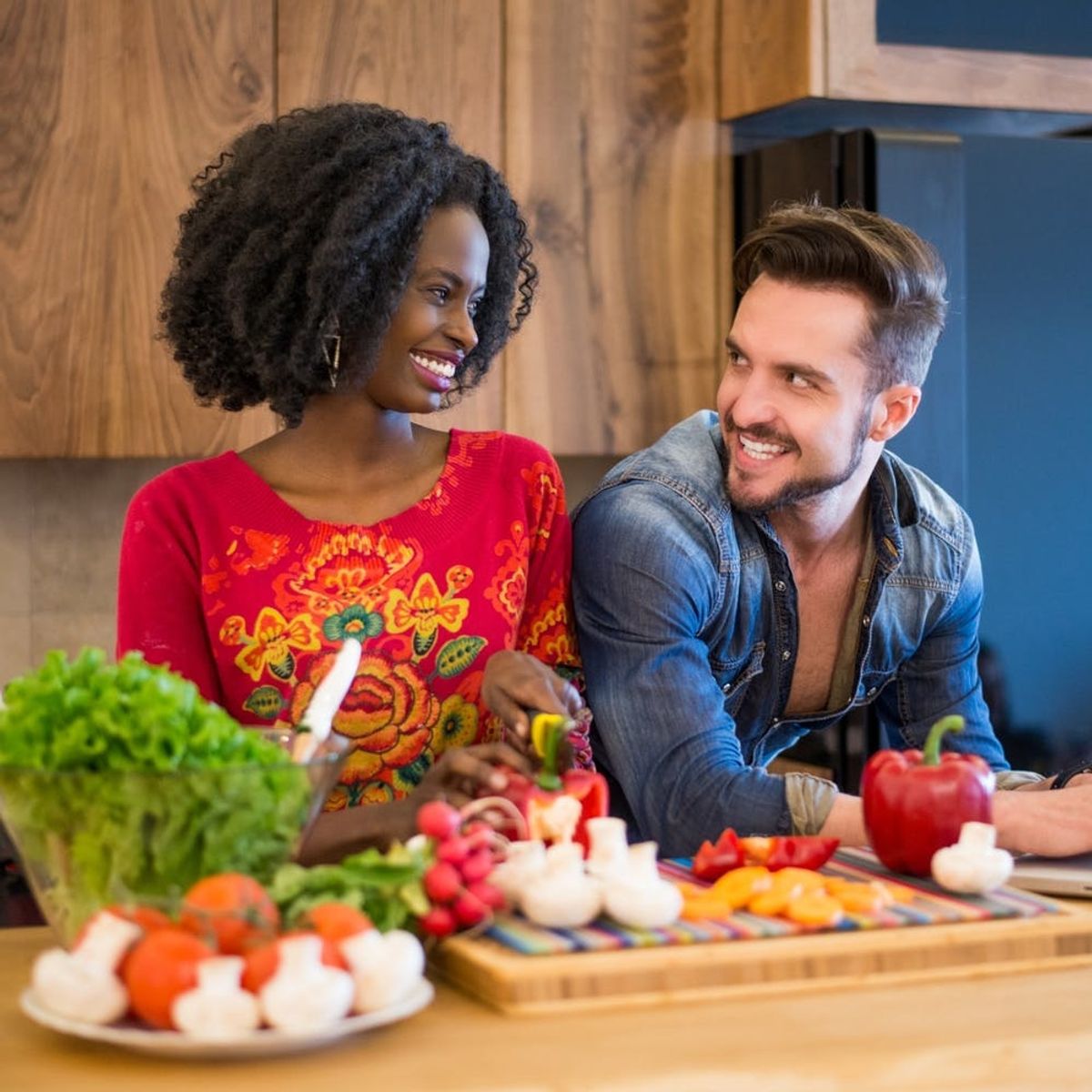The 8 Best Pieces of Advice Top Nutritionists Ever Received

Ever wonder what the absolute best jewel of advice nutritionists ever got from their mentors, professors, peers and even friends and family? So did we. When it comes to empowering yourself to eat healthy and feel energized, nutritionists have no shortage of amazing deets (and perhaps some outdated nutrition advice they wish you would skip already!). We tapped top RDs to dish out the best piece of food-related guidance they ever received. So go ahead, enjoy that nutrient-brimming PM snack and read on…
1. The most empowering way to take control of your health is to cook your own food! “The only way to know exactly what you are putting into your body is to be the person who selects the ingredients and the way the food is prepared. Having curiosity for why a food is nutritious or tastes good is inspiring and is what will keep [you] motivated to make the best eating choices. Nutrition is more than just calories — it is our small everyday choices that eventually lead to an accumulated lifetime of good nutrition,” says Rebecca Lewis, RD for HelloFresh, a leading healthy meal delivery kit company available nationwide, who says her mom and Michael Pollan have both been her biggest inspirations and teachers.
2. Nutrition is not just about nutrients. “Knowing the function of vitamins and minerals and which foods they’re found in is just one small part of nutrition. We don’t eat nutrients in isolation; we eat food, and sometimes complex meals,” says Kayleen St. John, RD, Executive Director of Nutrition and Strategic Development of Euphebe, sharing a piece of sage advice she picked up from a colleague, Laura Rosenberg. “Knowing that broccoli contains vitamin C is one thing, but being able to communicate why this matters and how to make a delicious meal containing broccoli is a different matter entirely.”
3. Put fruits and veggies first. “The most important, useful and inarguable advice I have ever received (and therefore, pass along to my clients and audiences) is to focus on fruits and vegetables,”shares Julieanna Hever, a plant-based dietitian and author of The Vegiterranean Diet. “Every major health organization in the world agrees with it. Fruits and vegetables are the most nutrient-dense, calorie-poor and health-promoting foods we have. Yet, fewer than 10 percent of Americans consume the minimum recommended intake.” Need to load up on more? Here are 11 recipes you’ll never know are filled with vegetables.
4. You can only take people as far as you have gone. “One of my nutrition counseling mentors and author Evelyn Tribole said this to encourage me to do my own work on self-acceptance and body image if I was going to be helpful to others learning to reject dieting in favor of intuitive eating,” offers Rebecca Scritchfield, RDN, author of the upcoming book, Body Kindness. Hallelujah to that attitude!
5. Food is more than just nutrition and numbers. “It connects us to our bodies and how it makes us feel both physically and emotionally (happy, strong, sad, tired, etc…). It helps create an opportunity to slow down and intimately bond with the people we share a meal with (friends, family, co-workers). It educates us about the farmers that dedicate their lives to raise, grow and produce the food for our world. And lastly, food crosses all cultural barriers to help us develop compassion and common ground even with those that are different than us,” shares Lewis. Think of your favorite memories in life — chances are, more than a handful involve being gathered around a table.
6. Don’t pay attention to food labels. Short and sweet but oh-so-true: “Ignore everything on the food label other than ingredients. Everything else is simply marketing,” cautions Hever. Curious to learn more? Check out nine techy ways to learn what’s really in your food.
7. It’s okay to have different views than “experts.” “The field of nutrition and the science that supports it is constantly evolving. Some of the most educated and brightest folks in the nutrition field disagree on what precisely constitutes a ‘healthy diet,'” says St. John, who learned this lesson from a professor at New York University, Dr. Kathleen Woolf. “It’s okay to have different opinions than others, just know where your opinions come from (beyond that you heard someone else say it!). Read articles and research constantly, and always ask why.”
8. Make healthy food taste good. “My culinary she-ro, celebrity chef and author Ellie Krieger, reminded me that people care about taste, first and foremost,” reveals Scritchfield. “I realized that instead of being the ‘food police,’ I should use ingredients like butter, salt and sugar to enhance the flavor and enjoyment of foods to help make it easier to eat healthy for a lifetime.” Now, if you’ll excuse us, we’re off to make healthy brownies (you’ll never know we slipped black beans in ’em!)…
What’s your favorite piece of healthy eating advice you’ve ever gotten? Share with us by tweeting @BritandCo!
Brit + Co may at times use affiliate links to promote products sold by others, but always offers genuine editorial recommendations.
(Photos via Getty)


















